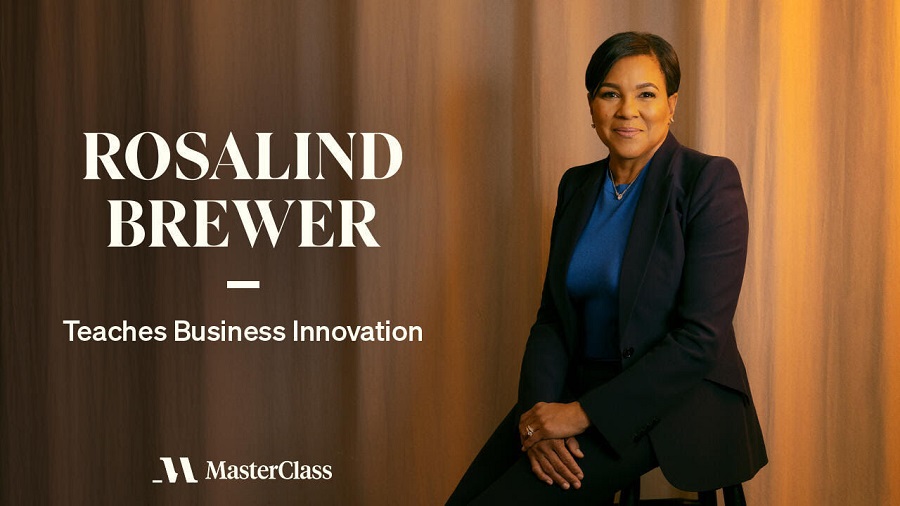
Discover the top future skills to learn to stay relevant in an automation and AI-driven world and ensure long-term career success.
The global workforce faces unprecedented change as AI and automation continue to reshape industries. According to the World Economic Forum, 85 million jobs may be displaced by automation by 2025, but 97 million new roles could emerge, emphasizing the demand for uniquely human skills.
McKinsey estimates that by 2030, up to 375 million workers will need to switch occupational categories entirely. In this evolving landscape, skills like critical thinking, emotional intelligence, and adaptability are becoming non-negotiable for career resilience.
This article explores the top future-proof skills professionals need to thrive in a world increasingly dominated by intelligent machines.
Contents
Best Future Skills to Learn for a World of AI and Automation
As technology transforms industries, mastering future-proof skills is critical for career resilience and success. Here is a comprehensive list of skills, expanded to highlight their relevance and applicability in a rapidly evolving professional landscape.
Cognitive Skills
#1. Critical Thinking
Critical thinking is essential for analyzing complex problems and making informed decisions in an uncertain world. It enables professionals to break down challenges, consider multiple perspectives, and evaluate solutions objectively, ensuring decisions are based on evidence rather than bias.
This skill is particularly valuable in dynamic environments where quick, rational thinking is needed. Critical thinkers can navigate ambiguity, weigh potential outcomes, and adjust strategies as necessary, positioning themselves as key decision-makers in the face of technological change.
Click here to learn critical thinking skills
#2. Problem-Solving
Problem-solving is a crucial skill for navigating the unexpected challenges that arise in any profession. Effective problem-solvers can identify the core issue and think creatively to generate innovative solutions.
They approach problems from different angles, often thinking outside the box, and applying practical strategies to overcome obstacles and address real-world issues swiftly, drive progress, and achieve impactful results even in high-pressure situations.
Click here to learn problem-solving skills
#3. Adaptability Skills
Adaptability is essential for staying relevant in industries driven by rapid technological change.
Professionals who embrace change and quickly learn new skills can navigate evolving challenges effectively. This flexibility enables them to remain valuable and thrive in a competitive, ever-changing landscape.
Click here to learn adaptability skills
#4. Future Thinking
Future thinking equips you with the tools and mindsets to thrive in a rapidly changing world. By mastering foresight techniques, you’ll learn to anticipate trends, uncover opportunities, and navigate uncertainty with confidence.
This approach enhances your ability to think creatively and optimistically about what lies ahead, empowering you to shape your future and be better prepared to adapt, innovate, and lead in a world of constant change.
Click here to learn future thinking
#5. Systems Thinking
Systems thinking involves understanding how various components within a complex system interact and influence each other. It requires the ability to identify patterns, interdependencies, and feedback loops within processes or organizations.
This skill is crucial for strategic planning, enabling professionals to see the big picture and anticipate how changes in one area affect others. By managing interconnected processes, systems thinkers optimize outcomes and drive long-term success.
Click here to learn systems thinking skills
Interpersonal Skills
#6. Emotional Intelligence (EQ)
Emotional intelligence involves recognizing and managing one’s emotions while understanding the feelings of others. High EQ fosters strong relationships, enhances team dynamics, and improves leadership by promoting empathy and effective communication.
It also plays a crucial role in conflict resolution, enabling individuals to navigate disagreements constructively and maintain positive interactions in challenging situations.
Click here to learn emotional intelligence skills
#7. Communication Skills
The ability to convey ideas clearly and effectively across various mediums and audiences is crucial in any role. Strong communicators build trust, influence decisions, and bridge knowledge gaps, ensuring that messages are understood and acted upon.
Effective communication fosters collaboration and helps align teams, ultimately driving organizational success by ensuring all stakeholders are informed and engaged.
Click here to learn communication skills
#8. Collaboration & Teamwork
Working effectively with diverse teams and fostering synergy is key to achieving collective success. Collaboration thrives on mutual respect, shared goals, and the ability to navigate differences, ensuring that each team member contributes their strengths.
By creating an inclusive environment where diverse perspectives are valued, teams can innovate and solve problems more efficiently, driving better outcomes and strengthening overall performance.
Click here to learn collaboration and teamwork skills
#9. Conflict Resolution
Navigating and resolving disagreements constructively is essential for maintaining productive relationships. Conflict resolution skills involve active listening, empathy, and a focus on finding win-win solutions.
By addressing issues calmly and collaboratively, individuals can prevent escalation, foster understanding, and strengthen relationships, ensuring that conflicts lead to positive outcomes and improved team dynamics.
Click here to learn conflict resolution skills
#10. Empathy
Understanding and sharing the feelings of others helps build meaningful connections and fosters trust. Empathy enhances customer service, leadership, and collaboration by promoting compassion and understanding.
It enables individuals to address others’ needs more effectively, creating a supportive environment that drives human-centered outcomes and strengthens relationships both personally and professionally.
Leadership &Management Skills
#11. Strategic Thinking
Strategic thinking involves planning for long-term goals while addressing current challenges. It enables leaders to anticipate trends, align resources effectively, and make informed decisions that ensure sustainable growth.
By balancing immediate needs with future objectives, strategic thinkers can navigate uncertainties and drive success, positioning organizations for continuous improvement and long-term achievement.
Click here to learn strategic thinking skills
#12. Innovation & Creativity
Innovation and creativity are essential for generating new ideas and approaches that drive problem-solving and provide a competitive edge. Creative thinkers are crucial in adapting to technological disruptions, finding unique solutions, and creating value in evolving markets.
By fostering a culture of innovation, organizations can stay ahead of the curve, continuously improving products, services, and processes to meet changing demands and deliver sustainable success.
Click here to learn innovation & creativity skills
#13. Decision Facilitation
Leading groups to consensus and actionable outcomes are key to driving team alignment. Effective facilitators balance diverse viewpoints, encourage open dialogue, and guide teams toward shared solutions.
By fostering collaboration and ensuring all voices are heard, they help teams make informed decisions and take unified action, resulting in stronger outcomes and enhanced team cohesion.
Click here to learn decision-facilitation skills
#14. Change Management
Guiding teams through transitions and transformations is essential for maintaining stability and ensuring progress. This skill helps organizations adapt to new technologies, market shifts, or internal changes, minimizing disruption while maximizing opportunities.
Effective change management fosters resilience, engages employees, and ensures that transitions align with long-term goals, allowing organizations to thrive in evolving environments.
Click here to learn change management skills
#15. Inspiring & Motivating Others
Fostering a sense of purpose and driving engagement is key to boosting team morale and productivity. Inspirational leaders ignite passion, encourage excellence, and create an environment where individuals feel empowered to contribute their best work.
Learn how to give praise that motivates and uplifts in this MasterClass with Kim Scott, renowned executive coach and bestselling author of Radical Candor® and Just Work.
Transform your teams and tackle tough conversations, use her Radical Candor® method to give and solicit feedback, cultivate an inclusive culture, and empower others with your honesty.
Click here to learn inspirational leadership skills
Technical & Analytical Skills
#16. Digital Literacy
Staying proficient in current and emerging technologies is essential in today’s tech-driven world. Digital literacy empowers individuals to adapt to new software, platforms, and processes, helping them stay relevant and drive innovation in their respective fields.
Digital literacy enables professionals to use tools and systems to remain efficient and competitive. It also supports continuous learning and integrates new technologies into daily tasks and decision-making.
Click here to learn digital literacy skills
#17. Tech Savviness
Learning new tools and platforms quickly is vital for adapting to ever-changing work environments. Tech-savvy individuals stay ahead by identifying opportunities for innovation, improving efficiency, and leveraging the latest technologies to enhance productivity.
Their ability to swiftly integrate new systems ensures they remain valuable assets in dynamic industries, driving continuous improvement and optimizing processes.
Click here to learn Gen AI for productivity
#17. Data Analysis
Interpreting and leveraging data to make informed decisions is crucial for business success. Proficiency in data analytics allows professionals to uncover valuable insights, identify patterns, and predict trends, enabling them to make strategic choices.
By turning raw data into actionable information, data-savvy individuals help organizations optimize performance, improve decision-making, and stay ahead of competitors in an increasingly data-driven landscape.
Click here to learn data analytics
#19. Coding & Automation Awareness
Understanding basic programming concepts and automation potentials prepares professionals to collaborate effectively with AI systems. It bridges the gap between technical and non-technical teams, enabling smoother communication and a better understanding of how automation can enhance workflows.
This awareness can contribute to implementing AI-driven solutions and ensure their teams are aligned in leveraging technology to achieve business goals.
Click here to learn about robotic process automation
#20. Cybersecurity Awareness
Maintaining safe practices in increasingly digital environments is crucial for protecting sensitive information and systems. As cyber threats continue to rise, professionals with cybersecurity awareness help safeguard data, prevent breaches, and ensure organizational security.
This skill enables individuals to identify vulnerabilities, follow best practices, and contribute to a culture of security, minimizing risks and maintaining trust in digital operations.
Click here to learn cybersecurity skills
#21. Data & Artificial Intelligence (AI)
A strong grasp of AI fundamentals and data-driven tools is essential in today’s workplaces. Professionals proficient in these areas can collaborate with AI systems, using data to optimize outcomes, improve decision-making, and streamline processes.
This knowledge enables individuals to effectively integrate AI solutions into their work, driving innovation and enhancing efficiency while staying competitive in a technology-driven environment.
#22. Cloud Computing
Understanding cloud technologies is crucial for seamless data storage, collaboration, and scaling operations. Proficiency in cloud computing enables professionals to manage and access data from anywhere, facilitating efficient workflows and scalability.
In IT and tech-related roles, this skill is essential for leveraging cloud platforms to support business growth, enhance security, and ensure flexibility in a rapidly evolving digital landscape.
Click here to learn cloud computing skills
Creative & Communication Skills
#23. Content Creation
Developing engaging, value-driven content is vital in the digital economy to capture audience attention and drive brand success. Professionals skilled in storytelling, writing, and multimedia production can effectively reach and captivate diverse audiences across platforms.
By combining creativity with strategy, they produce content that informs, entertains, and influences, establishing a strong online presence and building meaningful connections with customers and stakeholders.
Click here to learn content strategy skills
Personal Development Skills
#24. Resilience Skills
Recovering from setbacks and focusing on goals is essential for thriving in volatile environments. Resilient professionals can navigate challenges with perseverance, adapting quickly and learning from adversity.
This skill helps individuals stay motivated and maintain a positive outlook, enabling them to bounce back stronger and more determined, ensuring continued success even in uncertain or difficult circumstances.
Click here to learn resilience skills
#25. Curiosity & Lifelong Learning
Staying open to new knowledge and continually updating skills is crucial for staying ahead in a rapidly changing world. Lifelong learners are adaptable, growth-oriented, and proactive in embracing new trends, technologies, and ideas.
This mindset allows professionals to remain relevant, innovate, and seize new opportunities, ensuring long-term success in their careers.
#26. Time Management
Prioritizing tasks and managing time efficiently is key to maintaining productivity and achieving balance. Effective time management helps professionals focus on high-priority activities, avoid distractions, and meet both short-term deadlines and long-term objectives.
By organizing their schedules and staying disciplined, individuals can optimize their efforts, reduce stress, and maintain a steady path toward success.
Click here to learn time management skills
#27. Networking Skills
Building and maintaining meaningful professional relationships is key to unlocking opportunities and fostering collaboration. A strong network provides valuable support, resources, and insights, helping professionals navigate career transitions and challenges.
By connecting with diverse individuals and nurturing these relationships, professionals can open doors to new ventures, gain mentorship, and stay informed about industry trends, ultimately advancing their careers.
Click here to learn networking skills
#28. Mindfulness & Focus
Staying present and maintaining clarity in a fast-paced world is essential for enhancing decision-making and creativity. Mindful professionals manage stress effectively, navigating complexity with calm and precision.
By maintaining focus and awareness, they can make better choices, stay resilient under pressure, and approach challenges with a clear, strategic mindset, leading to improved performance and well-being.
Click here to learn mindfulness & focus
Ethical & Global Awareness
#29. AI & Ethics Knowledge
Understanding the ethical implications of AI is crucial for ensuring its responsible use and fostering innovation. As AI systems increasingly influence decision-making, professionals with this knowledge can guide organizations in implementing AI solutions that are fair, transparent, and aligned with societal values.
This skill helps mitigate risks such as bias and discrimination, ensuring that AI technologies benefit all stakeholders and adhere to ethical standards.
Click here to learn about AI & ethics
#30. Ethical Decision-Making
Understanding the broader implications of actions and technologies is essential for fostering responsible decision-making. As businesses integrate AI and automation, ethical considerations play a critical role in ensuring fairness, transparency, and accountability.
Professionals who prioritize ethics can guide organizations toward making responsible choices, balancing innovation with social responsibility, and maintaining trust with stakeholders in an increasingly digital world.
Click here to learn ethical decision-making skills
#31. Cultural Competence
Working effectively in diverse cultural settings is crucial in today’s globalized workforce. This skill enables professionals to collaborate seamlessly across geographic, cultural, and social boundaries, fostering mutual respect and understanding.
By embracing diverse perspectives and adapting communication styles, individuals can navigate cultural differences, enhance teamwork, and build inclusive environments that drive innovation and success in international markets.
Click here to learn cultural competence skills
#32. Sustainability Awareness
Recognizing the importance of sustainable practices is crucial for driving long-term success in today’s world. Professionals with sustainability awareness align their work with environmental and societal needs, ensuring that business operations contribute positively to the planet and society.
By integrating sustainable practices into decision-making, they help create a balance between economic growth and responsible resource use, fostering a sustainable future for organizations and communities alike.
Click here to learn about sustainability awareness
#33. Social Responsibility
Contributing positively to society through work and initiatives enhances an organization’s overall impact. Professionals with a strong sense of social responsibility help businesses build trust, strengthen brand reputation, and create meaningful relationships with the community.
By aligning business practices with societal values, they foster a culture of giving back, driving long-term goodwill, and creating positive change within and beyond the organization.
Click here to learn CSR skills
Developing these future skills will help future-proof your career and empower you to thrive and lead in a world increasingly influenced by AI and automation.
Top Skills to Learn for Success
- 52 Critical Business Skills For Success
- Best Skills to Learn to Make Money
- 25 Top Skills Employers Look For
- Business Acumen Skills for Entrepreneurs
- Learn Generative AI to Transform Your Career
- What are the Top Leadership Skills to Develop?
- How To Learn Writing Skills in English
- 15 Most In-Demand Freelance Skills to Learn
- Learn Soft Skills & Personality Development
© 2024 – 2025, Priya Florence Shah. All rights reserved.
Priya Florence Shah is a bestselling author and an award-winning blogger. Check out her book on emotional self-care for women. Priya writes short stories and poetry and chills with her two-legged and four-legged kids in her spare time.
Discover more from Business & Branding Tips
Subscribe to get the latest posts sent to your email.
















